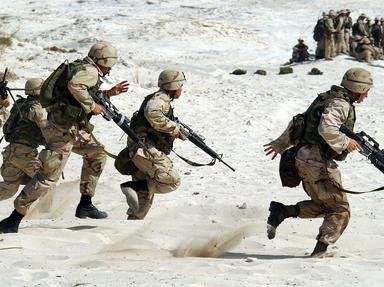Quiz Answer Key and Fun Facts
1. After U.S. President Woodrow Wilson proclaimed neutrality in 1914, the British launched an impressive blockade against Germany. What body of water did Britain declare a "war zone"?
2. When the Allies found they could not finance the purchase of everything they needed during the war, the U.S. government permitted _________ to extend as much as $3 billion in secured credit to Great Britain and France. Fill in the blank.
3. The sinking of the Lusitania resulted in which U.S. cabinet member resigning?
4. How many lost their lives due to the German sinking of the Arabic in August 1915 off the coast of Ireland?
5. What country's propaganda intensified the United States' anti-German attitude during World War I?
6. The sinking of the Sussex, which resulted in 31 Americans dead, led Germany to make the Sussex pledge.
7. The election of 1916 saw Democrat Woodrow Wilson back in office for a second term. Who ran against him as the Republican candidate?
8. The return of German unrestricted submarine warfare led President Wilson to break off U.S. diplomatic relations with Germany.
9. The infamous Zimmermann Note aroused the American people when it was sent to what country?
10. On April 2, 1917, President Wilson asked that Congress recognize a state of war existed between Germany and the United States. He condemned Germany's submarine policy as "warfare against mankind" and declared: "The world must be made safe for ___________". Fill in the blank.
Source: Author
thewho13rd
This quiz was reviewed by FunTrivia editor
bloomsby before going online.
Any errors found in FunTrivia content are routinely corrected through our feedback system.

